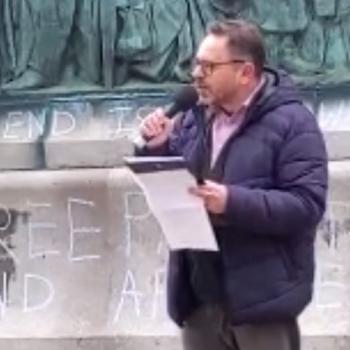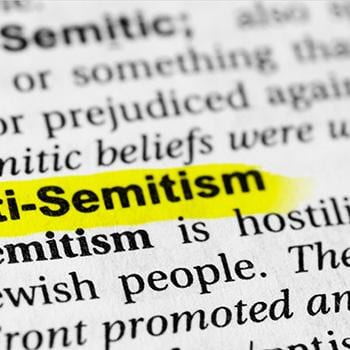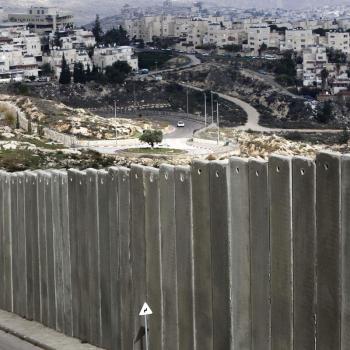The timing is either perfect or perverse, depending on your point of view.
At the very moment that the UK government has announced plans to ban boycotts, divestment and sanctions by public funded bodies, the very reasons for supporting non-violent strategies to achieve equality for the Palestinian people look more urgent and compelling than ever.
As I write this post, Israeli Jews are being killed and maimed by indiscriminate Hamas rockets fired from the Gaza Strip and are now experiencing the same sense of terror which has become common place for Palestinians in Gaza for years. Meanwhile, in Gaza itself, scores of Palestinians have been killed, including many children, as Israeli jets and drones drop shells that will inevitably land in residential areas. An Israeli ground invasion of Gaza is said to be being prepared. None of this has come out of the blue.
In the weeks and days before we reached this escalation of bloodshed we’ve witnessed a series of events in East Jerusalem which have made clear the disparity between the rights and privileges of Jewish and Palestinian residents of the city. In the last 48 hours, the frustrations, the rage and the acts of Palestinian resistance we are used to seeing in the Occupied Territories have spread to towns across Israel itself. That’s a whole new development and it suggests that Palestinains across Israel/Palestine are seeing themselves as joined in the same struggle for freedom and equality.
Whether it’s the rights of Palestinian families battling through the Israeli legal system to keep their homes in Sheikh Jarrah; or the assault by Israeli security forces on the Al-Aqsa mosque, one of the holiest sites in Islam; or the racist Jewish marches through Palestinian neighbourhoods, one thing is abundantly clear: Palestinians are not equal to their Jewish neighbours. You can see it in the legal system, the policing strategy and the attitude of elected Israeli politicians. In short, if you are a Palestinian, the system is rigged against you. After more than 70 years of statehood and more than 50 years of occupation, Israel (the only actor with genuine agency in this conflict) has shown itself to be institutionally and ideologically incapable of resolving the inequality which remains the root cause of the of violence and death we are now seeing.
Despite this on-going discrimination taking place in plain sight, Palestinians still struggle to get their voices heard or their experience understood. At best, we see headlines which portray the situation as ‘clashes’, a ‘conflict’ or even a ‘war’. In reality it’s none of these things. This is resistance responding to oppression. I don’t condone Hamas rockets any more than Israeli airstrikes, but I’m beginning to wonder if there will ever be a form of Palestinian advocacy or Palestinian resistance which will not be condemned, criminalised, or described as antisemitic. If your aim is to destroy hope, encourage desperation and provoke violence, then banning BDS will go a long way to achieving your ends. Such is the skewed logic and moral vacuum which pervades all discourse on Israel/Palestine.
Democratic deficit
There is no doubt that the democratic deficit in Israel/Palestine is profound. But democracy in the UK is in no great shape either.
Boris Johnson’s government has decided that you can’t ask for your public sector pension fund to divest from companies financially benefitting from a military occupation which has no end in sight. Nor will you be able to ask your university or student union not to partner with Israeli academic institutions developing weapons and intelligence equipment used to pacify an oppressed population. And if your local authority council wants to build trade links with a country now consistently described as practicing apartheid, there’s nothing you can do to stop it.
The animosity towards BDS has been nurtured in the UK by the Board of Deputies of British Jews and other pro-Israel lobby groups, notably Conservative Friends of Israel (CFI). In 2019, when Johnson’s government first announced its intentions on BDS (then put on hold because of the Covid pandemic), the Chairman of CFI, Eric Pickles MP told a conference in Jerusalem that “BDS is antisemitic and should be treated as such.”
Meanwhile, the Board of Deputies has continued to argue that BDS targets Jewish retailers, encourages division rather than dialogue, creates a hostile environment for Jewish students on campus, and delegitimises the Jewish State of Israel. What’s more, it claims, advocates for BDS typically slide their way towards antisemitism, assuming they aren’t already there.
During recent local council, mayoral and devolved assembly elections throughout the UK, the Board promoted its ‘Jewish Manifesto’ in the form of ‘Ten Commitments’ which it looked for all candidates to pledge support for. In the London version of the document commitment number 4 was as follows:
“Promote links between London and Israel, for example through trade and cultural missions, and engagement with municipalities of major Israeli cities. Oppose divisive boycotts of Israel and protect Jewish and Israeli cultural events from intimidation.”
It’s worth pausing for a moment to digest the inconsistencies and straight-up chutzpah on show here. By this reckoning, only support for Palestinians is “divisive”, while working towards trade and cultural links with Israel is to be encouraged and could not possibly cause any conflict, division or ethical dilemma. This despite the 200 pages of evidence from Human Rights Watch (HRW) that Israel is practicing Apartheid. The HRW report concludes by saying:
“Israeli authorities have deprived millions of people of their basic rights by virtue of their identity as Palestinians. These longstanding policies and systematic practices box in, dispossess, forcibly separate, marginalize, and otherwise inflict suffering on Palestinians.”
All about Israel
The role of the Board and CFI in pushing for this legislation to protect Israel’s reputation in the UK becomes obvious when you read the government’s background briefing document on its new legislative programme (see page 151). The boycott ban first appears generic and broad in nature and aligned to UK foreign policy:
“Measures will be introduced to ensure that support for businesses reflects the United Kingdom’s strategic interests and drives economic growth.”
But within a few bullet points it becomes clear that this is not generic at all. This is all about Israel:
“Preventing divisive behaviour that undermines community cohesion by preventing public bodies from imposing their own approach or views about international relations via their own boycott, divestment or sanctions campaigns. There are concerns that such boycotts may legitimise antisemitism.”
And if that hasn’t convinced you of which country this is really about, there are then the ‘Key facts’ which the new law will set out to address:
“Unofficial boycotts have been associated with antisemitism in the United Kingdom – including kosher food being removed from supermarket shelves, Jewish films being banned from a film festival and a student union holding a vote on blocking the formation of a Jewish student society.”
“Unofficial” is the right word, since no official campaign organised and promoted by the formal Palestinian led BDS Movement would target Jewish shop keepers or Kosher food or Jewish made films unless they were supported with direct financial aid from the Israeli government or were commercially benefitting from the occupation. And unlike the South African anti-Apartheid campaign, institutions not individuals are the focus of BDS campaigns. Outlawing all BDS activity will only lead to more rogue, misguided, and yes, antisemitic behaviour from individuals acting without the ethics and discipline of the official campaign.
Zero sum game
Thanks to the overwhelming dominance of Israel in Jewish diaspora affairs, we have arrived at a place where the only acceptable way to demonstrate care and concern for Jewish interests around the world is to adopt the IHRA document on antisemitism and oppose BDS. Anything less is not good enough.
The upshot is that when it comes to Israel/Palestine it’s become a zero sum game. It’s impossible to show concern about antisemitism and the security of Jewish communities while also advocating for Palestinian liberation in the way Palestinians have expressly asked the world to show its solidarity. This frustrating and self-defeating dynamic creates a Jewish road block on the path to Palestinian equality while at the same time impoverishing Jewish identity. According to the rhetoric in play, to be Palestinian, or in Palestinian solidarity, is to be antisemitic. While to be Jewish, or in Jewish solidarity, is to uphold or deny institutional, state sponsored discrimination. Thanks but no thanks. This is not the Palestinian people, nor the Jewish people. Please can we get that straight as a matter of urgency.
If you want to avoid the extremism of Hamas and the corruption of the Palestinian Authority and instead uphold the voice of grass roots Palestinian society, then BDS is where you have to stand. BDS campaigns are channelling justified frustration and rage into non-violent, and precisely targeted actions. BDS does not promote extremism, it avoids it.
The comfort blanket of antisemitism
I can understand why Jewish institutions like the Board of Deputies choose to see BDS purely through the lens of antisemitism. Such an assessment avoids any engagement with the root motivations of the campaign. Once you’ve decided that BDS is antisemitic, in both outlook and practice, there’s no need to go any further, ask any questions, or consider the nature of the grievance.
By framing BDS within an antisemitism discourse, Jewish community leaders avoid the need to face the injustice which Palestinians are attempting to draw to the world’s attention. In this context, the Board of Deputies and CFI’s claim to be combating antisemitism looks more like an act of denial, a refusal to see the scale and depth of the problem at hand. The allegation of antisemitism against BDS enables pro-Israel advocates to throw a comfort blanket around themselves. If BDS is nothing more than antisemitism (rather than a carefully constructed call for human rights and equality) then the formal Jewish leadership can continue to present itself, and the community it claims to represent, as victims of injustice. The truth is far more complicated and therefore uncomfortable. And, as the last few weeks have shown, the truth is getting harder by the day to deny.
The Jewish case for BDS
The arguments for Jewish privilege and dominance in Israel/Palestine are framed and justified in the name of Jewish national self-determination. Zionism is seen as the only way to ensure current and future Jewish security. BDS challenges the logic and the justice of that claim and the ideology which sits behind it. This is what makes it so threatening to Israel and Jewish diaspora leadership.
But maintaining injustice and oppression will never bring either true self-determination nor safety and security for the Jewish people. The events we are witnessing this week ought to make that blindingly obvious.
BDS is about fairness, equality and justice, ideas that have been at the heart of Jewish ethics for thousands of years starting with the Torah and the Hebrew Bible and through to Talmudic and secular Jewish thought. Just treatment of the ‘stranger’ is an axiom of Jewish theology. These same values have today created secure and vibrant Jewish communities around the world. It’s not hard to square Judaism and Jewish identity with the spirit and aims of BDS – until you also try to shoehorn in Zionism. It is a profound and tragic irony that in the place we call our ancestral home, we choose to abandon the very values which have so defined us.
When we see what’s happening across Israel/Palestine this week, it’s clear we need a strong, global BDS campaign more than ever.
#BDS
















